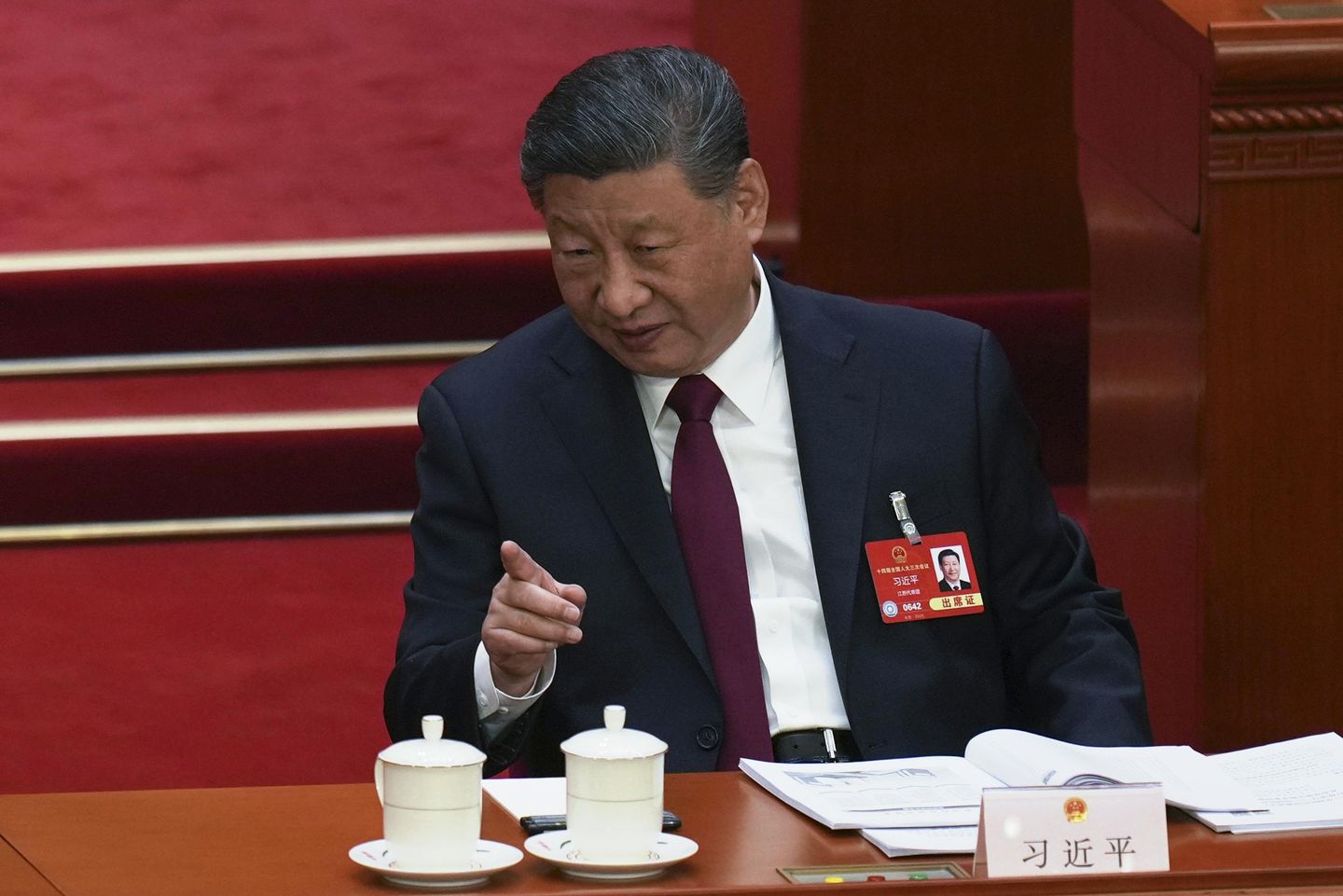
China accused the U.S. on Thursday of trying to “choke the throat” of other countries, including its own, and said it won’t engage with President Trump until he shows the country more respect.
Foreign ministry spokesman Lin Jian, speaking at a regular press conference, said Mr. Trump’s 125% tariff on Chinese goods and blanket 10% on other nations is bully tactic aimed at forcing nations to make “a compromise or concessions.”
“The U.S., in defiance of global criticism, is pitching itself against the rest of the world,” Mr. Lin said.
Mr. Trump paused his massive reciprocal tariffs on dozens of countries Wednesday after a massive selloff on Wall Street.
The White House cited the 70-plus nations that agreed to negotiate down trade barriers on U.S. goods, though Mr. Trump himself said people were getting nervous, or “yippy,” about the economic fallout so he issued a 90-day pause.
Nations targeted by the reciprocal tariffs are still subject to a 10% levy, and Mr. Trump increased the tariff on Chinese products because Beijing had retaliated with an 84% tariff on American goods.
SEE ALSO: Trump pauses reciprocal tariffs on many nations for 90 days, increases tariff on China
Mr. Trump said Beijing wants to cut a deal but doesn’t seem to know how.
“Intimidation, threat and blackmail are not the right way to engage with China,” Mr. Lin said. “If the U.S. truly wants to talk, it should let people see that they’re ready to treat others with equality, respect and mutual benefit.”
The White House says China is the one who bullies the world with its trade practices, including subsidies for certain industries, forced labor and theft of intellectual property.
Tariffs are a tax or duty paid by importers on the goods they bring in from foreign markets.
Mr. Trump says tariffs are a great way to force companies to return to America or keep their operations in the U.S., employ American workers and create revenue to fund domestic programs.
Foreign countries don’t pay the tariffs directly to the U.S. Treasury. In many cases, U.S. companies will pay the levies, and they might pass on at least some of the cost to consumers through higher prices.
SEE ALSO: Inflation fell last month as gas prices dropped sharply, a sign prices cooled before tariffs
The uncertainty spooked business leaders, investors and some of Mr. Trump’s own GOP allies.
Markets rallied Wednesday after Mr. Trump announced the pause, though the White House left in place a 25% tariff on steel and aluminum imports and a 25% tariff on cars that are not made in the U.S.
Canada and Mexico are still subject to a 25% tariff over the fentanyl crisis, though a range of goods are exempt under the U.S.-Mexico-Canada agreement, according to the White House.
European Union President Ursula von Leyen welcomed Mr. Trump’s pause on a reciprocal tariff that would have hit the EU at a 20% rate instead of the baseline 10%.
The EU on Thursday agreed to a 90-day pause on the retaliatory tariffs it approved one day earlier, citing Mr. Trump’s freeze.
“We want to give negotiations a chance,” Ms. von der Leyen said. “If negotiations are not satisfactory, our countermeasures will kick in.”
She said tariffs are taxes that would only hurt businesses and consumers. “That’s why I’ve consistently advocated for a zero-for-zero tariff agreement between the European Union and the United States,” she wrote on X. “The European Union remains committed to constructive negotiations with the United States, with the goal of achieving frictionless and mutually beneficial trade.”
At the same time, she said the EU “continues to focus on diversifying its trade partnerships.”
Beijing signaled it would be open to negotiations but was ready to dig in.
“China does not want to fight these wars but is not scared of them,” Mr. Lin said. “We will not sit idly by when the Chinese people’s legitimate rights and interests are denied or when the international trade rules and the multilateral trading regime are undermined. If the U.S. is determined to fight a tariff and trade war, China’s response will continue to the end.”

















